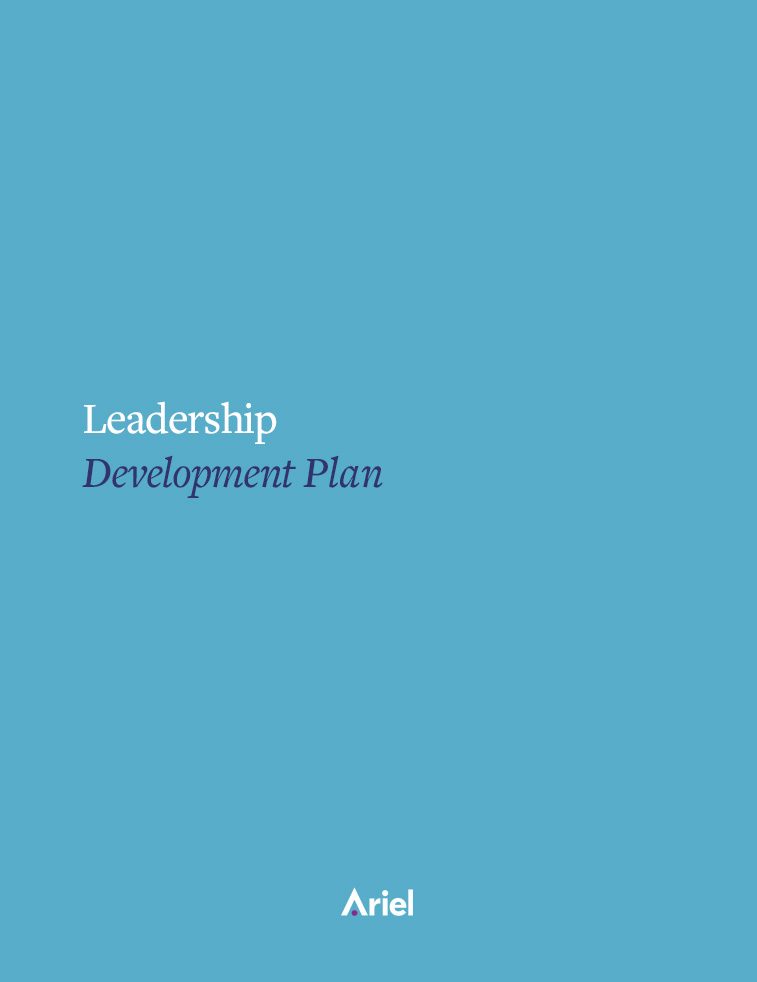Practice Makes Permanent: Using Reinforcement for Skills Training

You’ve just completed a training for directors at your company that you spent months planning and executing. The intended outcome was to make these directors more effective at solving internal communication crises in their teams.
Now, your goal is to make sure these newly developed skills stick. How? Set up opportunities for continued practice. To create long-term, lasting change requires deliberate practice over time.
The Science Behind Skill Acquisition and Behavior Change
Training and coaching is meant to improve performance, which means creating gradual behavior change. In a 1993 paper, Ericsson et al., demonstrated that expert performance is closely tied to hours of deliberate practice. People looking to build a skill need more than a one-time program, they need space to reinforce the learned behavior.
Skill acquisition can’t be achieved via lecture or PowerPoint. Whether it’s communication skills or leadership skills, they require more than passive information consumption. Real change happens when you acquire and execute new behaviors and practice new skills in a variety of situations (Barnett & Ceci, 2002).
Communication and leadership training programs offer a safe space to rehearse new behaviors and push participants outside of their comfort zones (also called “zones of proximal development” by learning researchers). Furthermore, learning in the flow of work or contextual learning has been proven to increase skill adoption and create lasting behavior change. This research reinforces why both concept reviews and practice should continue beyond workshops.
Ariel’s Approaches to Practice and Reinforcement
Practice and reinforcement shape how Ariel approaches designing communication programs. Practicing new skills in different ways helps to cement knowledge. Reinforcement activities like quizzes, reflection, incorporating opportunities to practice over time, and receiving feedback post-practice help with long-term skill retention.
We had this philosophy in mind when designing Practice Portal, a new training reinforcement approach that builds on in-person learning by incorporating technology that grades your presence, thought organization, and tone. Practice Portal gives users an opportunity to privately practice the skills they’ve developed, with an AI practice mirror tool to provide presence feedback on a message or presentation, an AI assessment tool to give information on your virtual presence and an AI roleplay tool to practice interactions based on programs like Manager as Coach or High-Stakes Conversations.
Another approach to training reinforcement are application clinics. These clinics create a space for learners to discuss opportunities and challenges related to applying new skills on the job. The ‘Application Clinic’ includes preparation, peer review, rehearsal, and coaching which can include validating or course-corrective feedback.
Application Clinics are complemented by shorter, 1:1 post-program reinforcement coaching (both in-person and virtual) for those seeking additional program-specific one-on-one coaching from facilitators. This approach includes coachee-specific action plans and exercises to build skills in the flow of work between coaching sessions.
Ariel offers digital reinforcement tools, like interactive digital reinforcement flashcard decks so that learners have access to tools and interaction planning worksheets for just in time support.
Real-World Applications of Training Reinforcement
Our clients often design reinforcement into programs with a clear strategic intent: enabling individuals to apply the skills they’ve developed when under pressure, in ways that align with their organization’s highest priorities. Take these two examples:
- A professional services firm wanted partners to sustain client trust during difficult negotiations, so participants engaged in clinics and 1:1 coaching to rehearse challenging interactions with poise knowing that consistency in how they showed up would support long-term relationship growth.
- A Fortune 100 company in the midst of transformation wanted leaders to lean on reinforcement to keep communication transparent and empathetic, with the expectation that this would support employee engagement and adoption of new systems.
Measuring the Impact of Training Practice & Reinforcement
Measuring the impact of learning and coaching is most powerful when it’s done in true partnership. At Ariel, we consistently track participant and facilitator feedback to ensure program quality, and we can also work with clients to develop more robust impact assessments.
To make that possible requires client collaboration to determine the right metrics and to incentivize participant follow-through on survey completion. These assessments take many forms: pre- and post-program confidence checks, simple pulse surveys, peer or manager feedback loops, or even tying reinforcement outcomes to metrics the organization already tracks, like engagement scores or promotion readiness.
By co-designing these strategies with clients, we make impact measurement practical and directly connected to their strategic priorities.
Contributors
Denis Saulnier is Ariel Group’s Chief Product Officer. He works with Ariel’s leadership team to define the product vision and develop the strategies and capabilities necessary to deliver on that vision. He leads go-to-market activities to increase Ariel’s relevance, engagement, and impact with clients. He manages the teams responsible for designing content and client solutions as well as the stewardship of our pool of facilitators, executive coaches, and executive partners.
is Ariel Group’s Chief Product Officer. He works with Ariel’s leadership team to define the product vision and develop the strategies and capabilities necessary to deliver on that vision. He leads go-to-market activities to increase Ariel’s relevance, engagement, and impact with clients. He manages the teams responsible for designing content and client solutions as well as the stewardship of our pool of facilitators, executive coaches, and executive partners.

Elsa Powel Strong currently serves as the SVP of Solution Strategy for Ariel, developing business leaders and organizations that inspire, motivate, and engage their people. She supports organizations and individuals to build the influence and communication skills they need to drive better performance. She is passionate about inclusion and belonging and empowering each person’s unique expression of their identity.
 Kristin Seifert holds a doctorate in theatre history, theory and criticism from the University of Washington, along with certifications in eLearning and instructional design. She currently works as the senior solution designer for Ariel and resides in Manhattan, surrounded by the life changing power of live performance.
Kristin Seifert holds a doctorate in theatre history, theory and criticism from the University of Washington, along with certifications in eLearning and instructional design. She currently works as the senior solution designer for Ariel and resides in Manhattan, surrounded by the life changing power of live performance.
